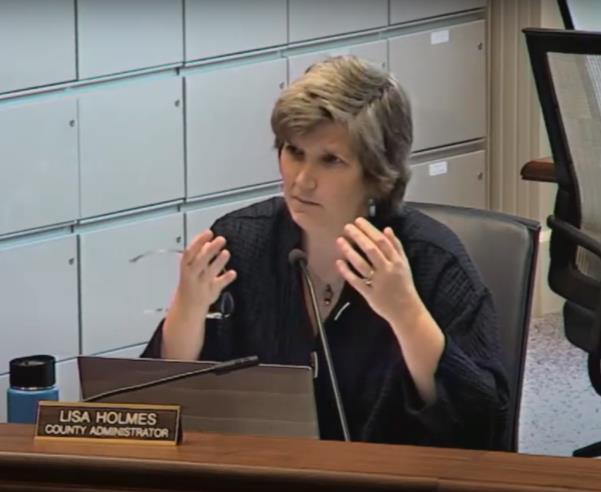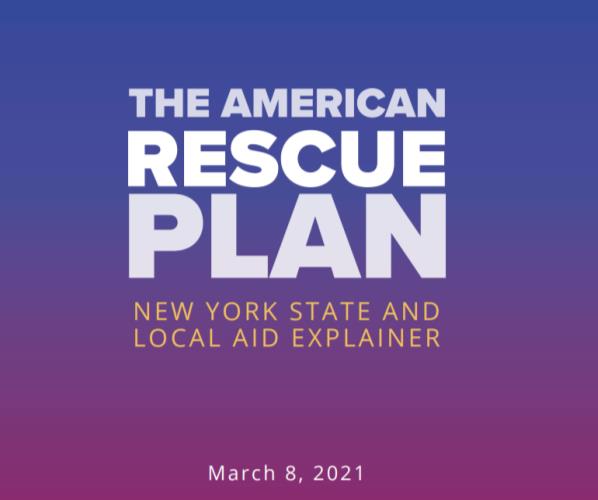$350G in Enfield Funding now looks safe
by Robert Lynch, June 1, 2023
It acted with dispatch. It acted on sound counsel. But as the dust settles in Washington and elsewhere, and with Congress poised to enact a $30 Billion “clawback” of COVID-relief funding as part of the Debt Ceiling deal, the Enfield Town Board may have acted with unnecessary haste and worry when it called a special meeting last week and appropriated nearly $295,000 in one night toward a host of projects in fears that its lump sum of American Rescue Plan funds would soon evaporate. Wiser advice one week later has indicated the money’s secure.

As to the COVID relief clawback, “I’ve not heard it’s ARPA,” Tompkins County Administrator Lisa Holmes told a monthly Zoom meeting of elected municipal officials Thursday morning. Newfield Town Supervisor Michael Allinger said he’d been told the same thing. And although the Debt Ceiling Bill, negotiated between Congress and the White House, calls for the clawback of “unobligated” COVID relief money, Dryden Village Mayor Michael Murphy said he’s been told the clawback only applies to funds still kept within the federal agencies, not what was promised—and subsequently handed out—to municipalities like Enfield.
If promised money were clawed back, there’d be “some screams” from local officials, Murphy told the Zoom conference.
Only after the Enfield Town Board had acted with excess caution on May 25th and distributed as much of its $349,639 American Rescue Plan appropriation as it found sound places to spend it—leaving little more than $23,000 left—did clarification emerge to calm local nerves a bit.
As usual, the devil lies in the details; and more particularly, in the definitions Washington bureaucrats and bill-writers placed on the terms they used when crafting their legislation.
“Local government officials need not panic,” the New York State Association of Towns (AOT) posted on its website during Memorial Day weekend, days after Enfield’s special meeting. “Once funds left the U.S. Treasury and were delivered to local government, they were considered ‘obligated’ for federal government purposes,” the AOT’s legal staff counseled. “This is different than the requirement that local governments spend or obligate funds by 2026.”
“In sum,” AOT advised, “local governments should not have to return ARPA funds, nor do they need to rush and spend the funding.”
I know: Now they tell us!
One’s tempted to equate this semantic snarl to the one that bedeviled former President Bill Clinton during the Lewinski scandal a quarter-century ago. In this case, “It depends on what the meaning of ‘obligated’ is.”
Even after the Enfield Town Board had distributed funds by Resolution May 25th, members worried about whether they’d provided sufficient protection against a Congressional clawback. Contracts with recipient agencies had yet to be penned. Checks remained to be cut. And in a couple of instances, contract awards for building repairs required competitive bids, not to be opened until late-June. Earlier this week, at least one Town Board member (this writer) spoke of the need for yet a second, special meeting, one to finalize whatever payments could be awarded prior to the debt deal’s Presidential signature.
Moreover, in a May 29th memo to the Town Board, Councilperson Robert Lynch (this writer), recommended the Board follow through on informal sentiments expressed at the close of its prior Thursday’s meeting and dedicate the remaining ARPA funds to a paving project just outside the Highway Garage. It was a project pushed by Highway Superintendent Barry “Buddy” Rollins.
“We have $23,180.97 left in ARPA as of last Thursday night,” this writer wrote. “I recommend we ‘obligate’ every last penny of it to Buddy’s yard paving project. A simple resolution should suffice.”
That second, special meeting never occurred. In retrospect, it appears there was no need for it.

Concern about the Enfield ARPA funding’s potential clawback arose at a May 10th meeting of the Town Board. It did so when Insero and Company’s Duane Shoen, in detailing Enfield’s annual audit, revealed that unspent ARPA funds stood vulnerable to clawback as part of the debt ceiling negotiations.
“If that money remains uncommitted, it’s definitely possible, depending on how those negotiations work out, that there may be some efforts to claw some of that back,” Shoen told the Town Board. In hindsight, it appears that when he defined “uncommitted” in its most literal sense, the auditor had lacked the most complete information.
“No one in Enfield should worry that we did the wrong thing,” Councilperson Lynch stated Thursday as the Debt Ceiling bill, including its $30 Billion COVID clawback, stood poised for action by the U.S. Senate. “To the contrary, we did the right thing; the judicious thing,” he added. “We appropriated Enfield’s ARPA funds wisely; spending money only on worthwhile projects and agencies. We helped buy the Enfield Food Pantry a building site. We’re enabling the Community Council to take youths on three years of field trips. We’re buying the Highway Department a generator to keep its crew functioning at top notch ability during emergencies. And we’re replacing a leaking roof over the Town Clerk’s office.”
“The appropriations will serve Enfield well,” Lynch added. “Maybe this mini-panic, as I’ve described it, gave us the kick in the pants to do what was needed.”
###

